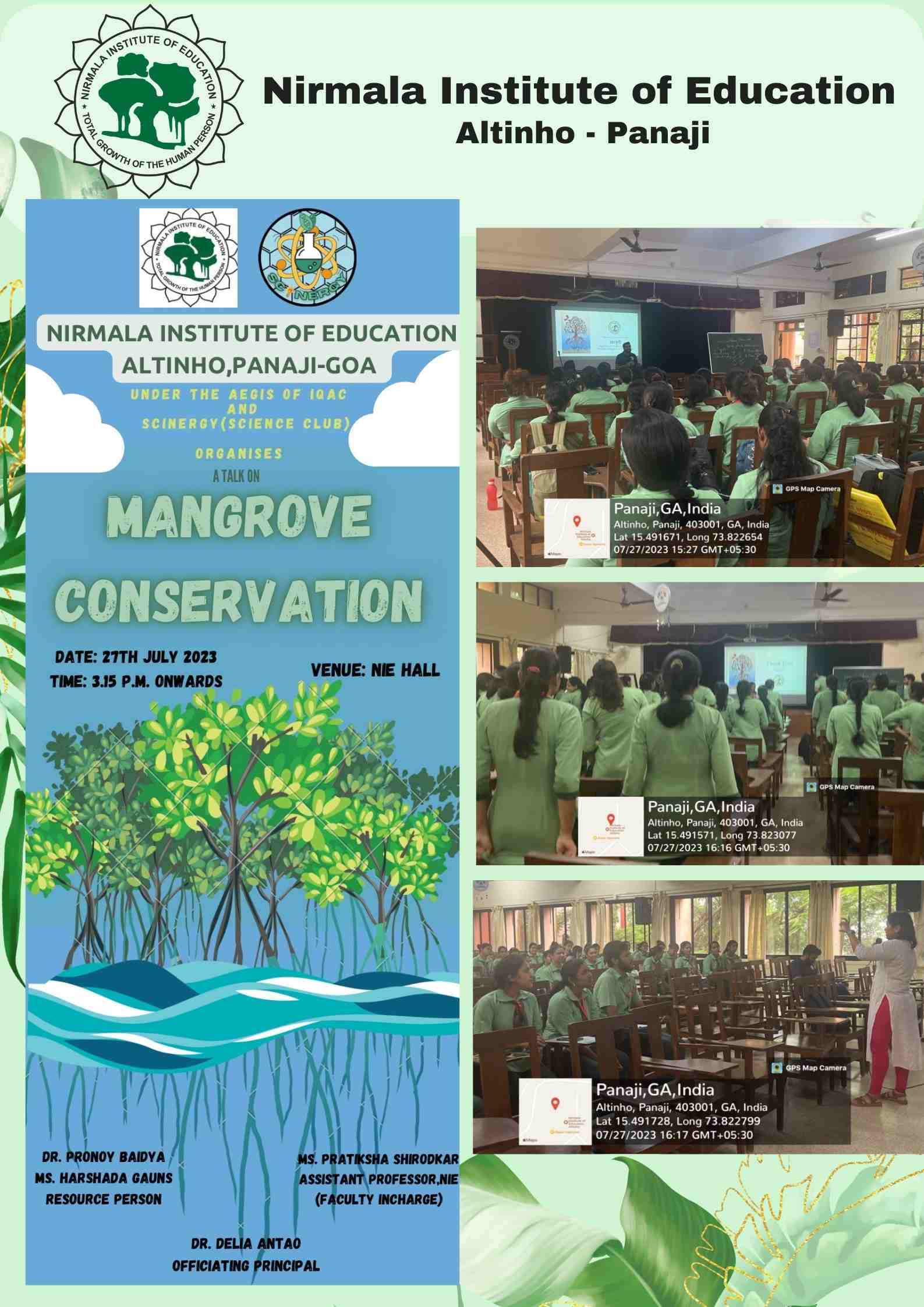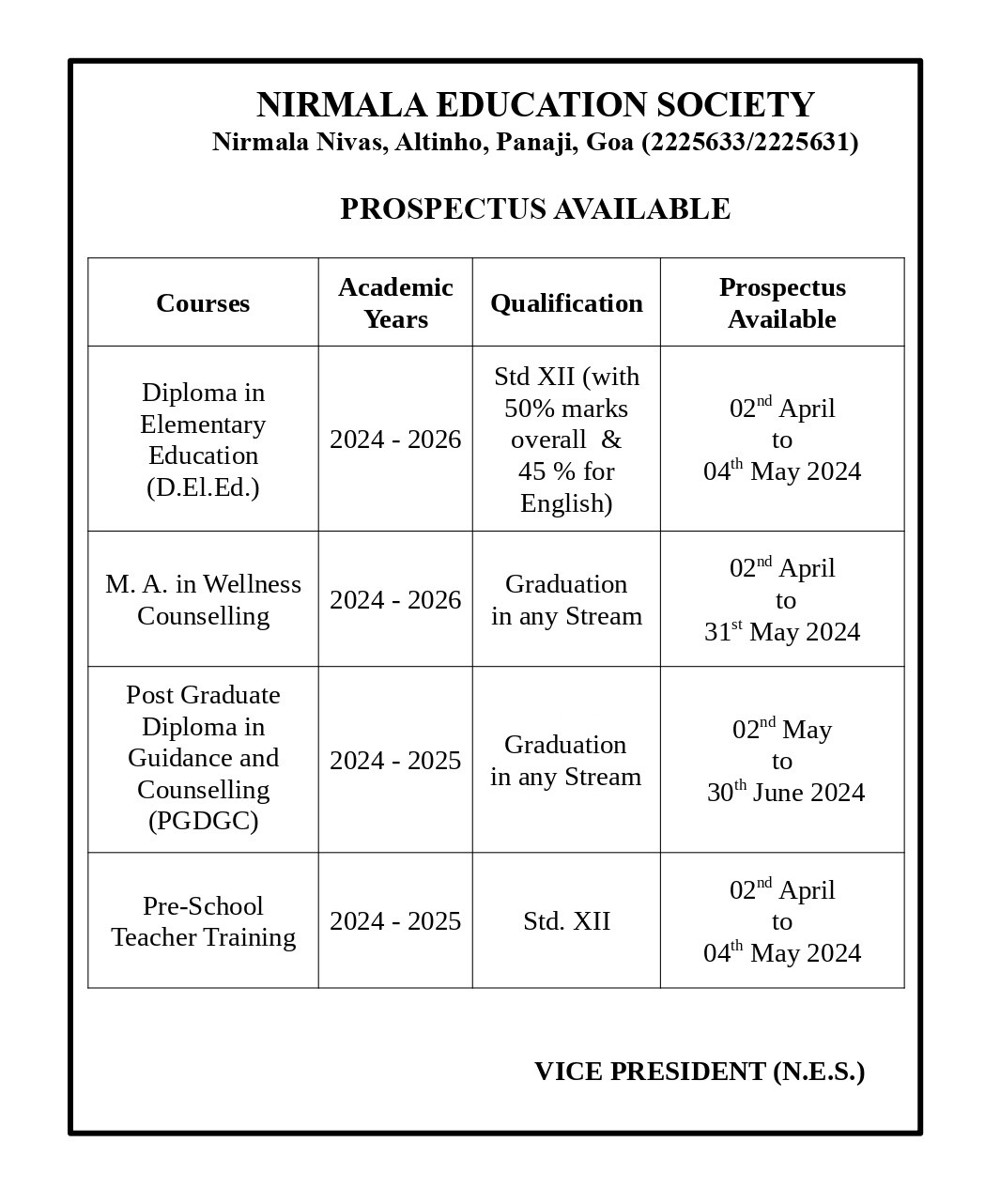A SESSION HELD ON 'MANGROVE CONSERVATION'
“Nature doesn't need people, people need nature” by Harrison Ford. Nature would survive the extinction of the human being and go on just fine, but human culture, human beings, cannot survive without nature. Nature provides the very foundation of our existence. It nurtures us with life-giving air, sustains us with nourishing food, and cleanses our souls with its bountiful offerings. As we navigate the complexities of the modern age, the need to cherish and preserve nature becomes more urgent than ever. Embracing our role as custodians of the planet, we must tread lightly, respecting and protecting the sanctity of nature's gifts for future generations to cherish and enjoy.
Under the aegis of IQAC and SCINERGY (Science club) at Nirmala Institute of Education, Altinho, Panjim, organized a talk on Mangrove Conservation for the S.Y.B.Ed. students on 27th July 2023 from 3:15 P.M. onwards in the N.I.E. Hall. The resource person was introduced by Ms. Pratiksha Shirodkar. The resource person for the workshop was Dr. Pronoy Baidya and Ms. Harshada Gauns. Dr. Pronoy Baidya is the founder Vice President of Goa Bird Conservation Network (GBCN) and currently on its executive board, Goa Coordinator for Asian Waterbird Census- Wetlands International and board member of Arannya Environment Research Organisation where as Ms. Harshada Gauns is an Environment Educator facilitating a Well-Informed Society, that can live sustainably and closer to nature. The session started with a brief introduction to their organization खारफृ टी, which emphasized on the importance of Mangrove Conservation.
Mangrove conservation is a vital environmental endeavour aimed at safeguarding and preserving the unique and crucial ecosystems known as mangroves. These ecosystems are found in tropical and subtropical coastal regions, where they flourish in the delicate balance between land and sea. Mangroves are characterized by their dense, salt-tolerant trees and intricate root systems, which play a pivotal role in mitigating the impact of coastal erosion, acting as a natural buffer against storms, tsunamis and rising sea levels. Hence Mangroves are known as silent warriors of our coast for 10,00,00,000 years. Their intricate root structures also serve as nurseries and habitats for a diverse array of marine species, contributing to the abundance and resilience of coastal ecosystems. Beyond their ecological significance, mangroves play a crucial role in mitigating climate change. They are highly effective at sequestering carbon dioxide, making them essential allies in the global effort to reduce greenhouse gas emissions and combat the effects of global warming. The total carbon sequestered by the Mangroves of Goa is around 3,03,24,00,000 Kg. However, Mangrove habitats are facing significant threats due to human activities such as deforestation, urban development, aquaculture and climate change. This has led to the rapid decline of mangrove areas worldwide, impacting biodiversity, coastal communities and the overall health of our planet. The steps shared by Dr. Pronoy Baidya for the conservation of Mangroves include
-
Curiosity to explore
-
Ask questions and learn
-
Share
Ms. Harshada Gauns shared a few tips on how to incorporate environmental aspects in education. Lastly, the session ended with a vote of thanks given by Ms. Rhea Rodrigues.














